Welcome, seekers of wisdom and architects of change! The following books on how to change your life are the portals to understanding, the keys to unlocking the boundless potential within. They aren’t mere volumes but vessels of inspiration, shaping our thoughts and sculpting the very essence of our being. In this exploration of transformative reads, we journey through the corridors of wisdom, guided by the belief that the right knowledge, at the right time, can set the stage for unparalleled personal growth and usher in the winds of transformation. So, gather around, as we delve into the realm of life-altering literature, where every page-turn holds the promise of a brighter, more enlightened tomorrow. Let the journey begin!
Think and Grow Rich by Napoleon Hill
Unleashing the Power of the Mind
A result of more than 20 years studying the independently wealthy, Napoleon Hill composes a Philosophy of Achievement that has stood the test of time. Within the pages of this literary masterpiece lies a revelation—a truth that transcends the ages and reverberates in the hearts of those who dare to listen. It beckons us to understand the alchemy of thought, where the mind, like a fertile soil, gives birth to the seeds of prosperity. In the realm of Napoleon Hill’s wisdom, positive thinking isn’t a mere disposition; it’s a force, an architect of destiny.  He invites us to shift our gaze from the mundane to the extraordinary, to envision wealth not as a distant dream but as a tangible reality waiting to be shaped by the chisel of our thoughts. “Think and Grow Rich” is more than a book; it’s a manual for mental metamorphosis. It whispers secrets—practical steps and timeless principles—for those willing to lend an ear. As Hill so eloquently puts it, “Whatever the mind can conceive and believe, it can achieve.”
He invites us to shift our gaze from the mundane to the extraordinary, to envision wealth not as a distant dream but as a tangible reality waiting to be shaped by the chisel of our thoughts. “Think and Grow Rich” is more than a book; it’s a manual for mental metamorphosis. It whispers secrets—practical steps and timeless principles—for those willing to lend an ear. As Hill so eloquently puts it, “Whatever the mind can conceive and believe, it can achieve.”
Turning Desires into Achievable Goals
“Think and Grow Rich” unfolds as a roadmap, guiding us through the labyrinth of dreams and desires, paving a way to transmute them into concrete, achievable goals. Hill, the maestro of success philosophy, reveals his 13 Principles, bridging the gap between ambition and accomplishment. Each principle whispers secrets of the great minds who walked the path before us.
We’re invited to witness the transformational journey of real-life trailblazers inspired by the teachings of Hill. Their stories echo the resonance of possibility and prove that the application of these principles is not a mere exercise in theory but a practical pilgrimage toward success. From the birth of desire to the realization of goals, “Think and Grow Rich” isn’t just a book; it’s a testament to the profound impact one man’s wisdom can have on the lives of many. It continues to be the ‘must-read’ book of any authority on personal development and I consider it to be the most transformative book for my mindset – literally changing my life.
How to Win Friends and Influence People by Dale Carnegie
The Art of Effective Communication
“How to Win Friends and Influence People” by Dale Carnegie is a timeless masterpiece—a guide that unravels the secrets of the human heart and reveals the building blocks of effective communication. Carnegie imparts the wisdom that communication isn’t merely the exchange of words; it’s an art—a dance that, when mastered, forges bonds that withstand the sands of time.
 In Carnegie’s principles of effective communication, we discover that the ability to listen, to understand, and to resonate with the thoughts and feelings of others, transforms mere interactions into profound connections. Dale Carnegie’s principles aren’t confined to classrooms; they transcend into the arena of everyday life, where they become the silent architects of meaningful relationships.
In Carnegie’s principles of effective communication, we discover that the ability to listen, to understand, and to resonate with the thoughts and feelings of others, transforms mere interactions into profound connections. Dale Carnegie’s principles aren’t confined to classrooms; they transcend into the arena of everyday life, where they become the silent architects of meaningful relationships.
The Impact of Genuine Interest: Applying Carnegie’s Lessons Professionally
Dale Carnegie’s timeless principles remind us that genuine interest holds the key to unlocking the chambers of the human heart. And in professional settings, the principles from “How to Win Friends and Influence People” become not just tools for success but pillars of authenticity that elevate us in the eyes of our peers.
Carnegie’s wisdom teaches us that genuine interest is more than a polite gesture; it’s a currency of connection. In the professional realm, where relationships are often transactional, the ability to authentically care about the well-being and aspirations of others becomes a secret weapon. Empathy becomes a bridge that spans the chasm between colleagues, fostering an environment where collaboration thrives.
In short, Carnegie’s lessons aren’t just mere social niceties; they are guiding principles we should embody in our pursuit of success. By applying the art of genuine interest and empathy, we not only enhance our professional standing but contribute to the creation of a workplace where relationships flourish, collaboration blooms, and success becomes a shared journey.
Rich Dad Poor Dad by Robert Kiyosaki
Shifting Perspectives on Wealth
In “Rich Dad Poor Dad”, Kiyosaki’s teachings invite us to rewrite the financial narratives that have shaped our beliefs about money and wealth. Shifting those perspectives will become the compass that guides us away from the treacherous currents of debt and towards the serene waters of prosperity. It’s more than a casual read; it’s the wisdom that financial success isn’t determined by the size of our paychecks, but by our understanding of the principles that govern wealth creation.
The Role of Assets and Liabilities
“Rich Dad Poor Dad” also directs aspiring minds toward the lesser known paths of financial ingenuity. Central to this journey is the embrace of the entrepreneurial mindset—a mental landscape where assets and liabilities are not mere financial terms but strategic tools in the pursuit of prosperity.
Kiyosaki’s wisdom beckons us to view assets not just as possessions but as allies in the quest for financial independence. In the echo of Jim Rohn’s teachings, we learn that an entrepreneurial mindset is more than a set of skills; it’s a philosophy that transforms liabilities into stepping stones and assets into vehicles of wealth creation.
The principles embedded in Kiyosaki’s work are not just theoretical musings but practical tools that can sculpt a destiny of financial abundance. His real life experience is an example of what an accurate mindset is all about – one of the most impactful lessons ever taught from a true story.
The 7 Habits of Highly Effective People by Stephen R. Covey
The Paradigm Shift Towards Proactivity
In the tapestries of personal development, Stephen R. Covey’s “The 7 Habits of Highly Effective People” stands as a masterpiece, each habit a vibrant thread contributing to the creation of a life rich in purpose and productivity. At the heart of Covey’s teachings lies the transformative concept of proactivity—an inner shift that defines the path from reactive living to purposeful existence.
This paradigm shift towards proactivity is not merely a shift in behavior; it’s a seismic change in mindset, heralding the acknowledgment that, in life, we are the authors of our stories and we are empowered to take charge of our destinies.
Integrating Covey’s habits into our daily lives isn’t merely adopting routines; it’s embracing a way of being. His wisdom becomes not just a manual for effectiveness but a philosophy that permeates our actions, fostering a harmonious blend of personal and professional effectiveness.
So, my fellow seekers of effectiveness, we can immerse ourselves in the principles of personal effectiveness woven within these pages. Let’s embody the paradigm shift towards proactivity and embrace Covey’s habits as the building blocks of a life marked by intention, purpose, and extraordinary effectiveness.
Building Lasting Character and Relationships
At the heart of “The 7 Habits of Highly Effective People”, also lies the concept of synergizing—a dynamic force that propels individuals towards collective achievement. This is the essence of building lasting character and relationships and it’s not a solo act, but a collaborative endeavor.
Synergizing, as Covey illustrates, is the what transforms individual strengths into a collective force, creating a success that transcends personal boundaries. And when that vision is realized in professional environments, we understand that our purpose is not merely to coexist but to co-create—a testament to the belief that the whole is greater than the sum of its parts. We can manifest that vision as a tangible reality, where our collective efforts propel us towards heights of success that would be unattainable alone.
The Richest Man in Babylon by George S. Clason
Lessons from Ancient Wisdom
Through the lens of ancient Babylonian parables, “The Richest Man in Babylon” imparts lessons that transcend centuries, offering a roadmap to wealth-building that echoes with the resonance of prosperity. From the timeless lesson of “start thy purse to fattening” to the art of multiplying wealth through prudent investments, each principle becomes a stepping stone towards financial success.
The power of these principles isn’t merely in their application but in their embodiment. Clason’s teachings can most definitely evolve into a way of life—a conscious decision to align our actions with the eternal truths that govern wealth creation.
As we journey through the ancient wisdom of “The Richest Man in Babylon,” let us embrace the power of financial principles. We can heed the timeless advice for wealth-building, not as a relic of the past but as a living testament to the enduring nature of prosperity.
Wealth-Building Strategies Through Parables
In “The Richest Man in Babylon”, George S. Clason emerges as a beacon of wisdom. He utilizes simple parables to show us the path to financial abundance. As we apply Babylonian wisdom in the modern world, we see ancient principles merged with contemporary financial landscapes.
The wealth-building strategies embedded in these tales become more than anecdotes; they transform into actionable steps towards financial prosperity. From the wisdom of “make thy gold multiply” to the art of safeguarding wealth through prudent investments, each parable becomes a roadmap to financial transformation.
Common Themes Across Transformative Books
As we’ve explored examples of the most transformative literature, a common thread weaves its way through the ages—a thread dedicated to the art of identifying and changing limiting beliefs. The pages of these transformative books serve as mirrors, reflecting the beliefs that shape our realities. We can now recognize the profound impact that our thoughts have on our destinies and with each turn of the page, we confront the limiting beliefs, understanding that true liberation begins with the acknowledgment and transformation of these mental barriers.
Universal Themes in Personal Development Literature: Lessons Across Time and Space
As students of personal development, we navigate a vast sea of literature, each book offering its unique wisdom. Yet, within this diversity, there exists a harmony of universal themes that reverberate through the corridors of time and space.
Discipline, resilience, and the unwavering belief in one’s potential emerge as universal beacons across the spectrum of personal development literature. These themes, illustrated vividly in the parables of Clason and echoed in the broader canon of transformative books, form the foundation upon which financial and personal success stand.
So, fellow seekers of wisdom, let us revel in the common themes that unite transformative books. Let us collectively embrace the journey of identifying and changing limiting beliefs while recognizing the universal truths that bind the pages of personal development literature.
Practical Application in Everyday Life: Transformative Insights in Action
Our journey through transformative literature not only equips us with profound insights but also beckons us to translate these revelations into actionable steps in our everyday lives. In the essence of taking knowledge from the page to the pavement, we look into the practical application of common themes found in these transformative books.
As we unfold the principles shared by Napoleon Hill, Dale Carnegie, Robert Kiyosaki, Stephen R. Covey, and George S. Clason, we seek not just understanding but integration. The lessons gleaned from “Think and Grow Rich,” “How to Win Friends and Influence People,” “Rich Dad Poor Dad,” “The 7 Habits of Highly Effective People,” and “The Richest Man in Babylon” are not meant to be confined within the covers of the books but to resonate in our daily actions.
Strategies for Implementation: Turning Wisdom into Action
- Mindset Mastery: Embrace the power of positive thinking. Recognize and challenge limiting beliefs, replacing them with empowering thoughts that align with your goals.
- Effective Communication: Apply the principles of building lasting relationships. Foster genuine connections through active listening, empathy, and clear communication.
- Financial Independence: Leverage the entrepreneurial mindset. Understand the distinction between assets and liabilities, and take steps towards financial freedom.
- Personal Effectiveness: Integrate the habits of highly effective people into your routine. Prioritize tasks, seek first to understand, and synergize for collective success.
- Wealth Building: Apply the lessons from ancient wisdom. Set financial goals, save consistently, and invest wisely to build lasting wealth.
Encouraging Transformative Experiences: Share Your Journey
As we translate these insights into action, let’s build a community of individuals committed to personal growth. Please, feel free to share your experiences, challenges, and triumphs as you apply the wisdom from these books in your daily life. By fostering a culture of learning and sharing, we not only enrich our individual paths but also inspire others on their transformative journeys.
 Sharing makes you bigger than you are, so let’s create a space where practical application becomes a shared experience. Together, we amplify the impact of transformative literature, making it a living force in the tapestry of our lives.
Sharing makes you bigger than you are, so let’s create a space where practical application becomes a shared experience. Together, we amplify the impact of transformative literature, making it a living force in the tapestry of our lives.
Conclusion: A Journey of Continuous Transformation
As we close the chapters of this exploration into transformative literature, it’s fitting to acknowledge the profound and everlasting impact of reading on our lives. And now, we stand at the intersection of wisdom and action.
Transformative books, like beacons in the night, guide us toward the shores of self-discovery, financial empowerment, and personal success. Through the pages of the books on how to change your life, we can glean lessons that transcend time and resonate with the human spirit.
These books can serve as both mentors and companions. They whisper timeless truths, challenging us to dream big, cultivate resilience, and transform our beliefs. As we journey forward, let us carry the torch of knowledge that these transformative books have passed to us.
Jim Rohn once said, “Formal education will make you a living; self-education will make you a fortune.” So, let’s not merely read; let’s absorb, reflect, and apply. Let’s be lifelong students, for in the pursuit of wisdom, we not only change our lives but contribute to the transformation of the world.
Get your copies and start your transformation here:

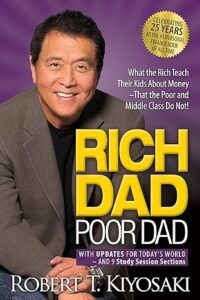


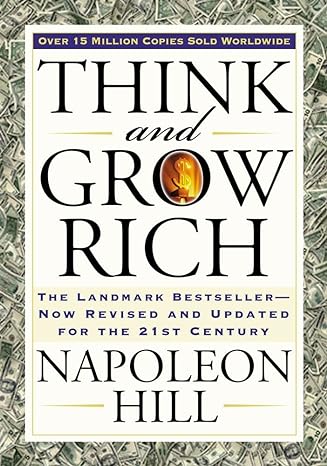
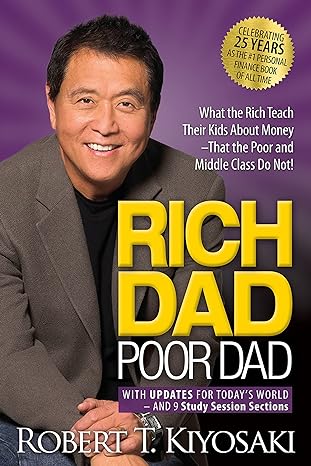
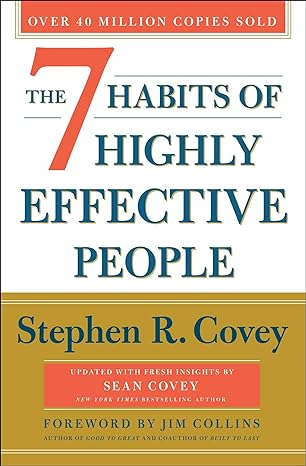
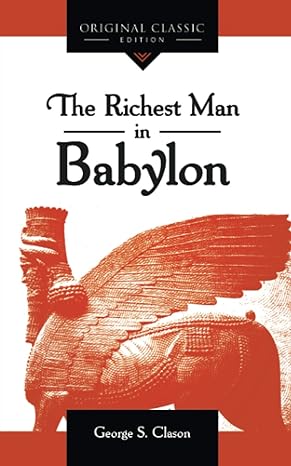
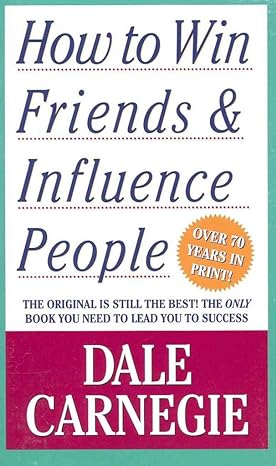

12 Responses
Not sure what happened here. I clicked on view the website and a computer message saying “Too many requests” came up on a blank page.
Please contact support so that they can help you fix this issue.
Then we can leave comments.
Thanks for sharing! As time goes on, you will get to grips with how to set up your site.
Stella, thanks for your feedback. I apologize for not testing the post before I shut down last night. I had to update it and now it’s loading as intended. Unfortunately, I think both the “too many requests” issue and the ‘wall of text’ issue had something to do with the post not being uploaded correctly.
Do you mind re-loading the page and seeing if that’s accurate? I feel terrible but now I know that I need to verify the upload before I ask for comments 🙂
Jake
Hi Jake,
I’ve read How to Win Friends and Influence People by Carnegie…I could do with reading it again. It’s a very educational book.
I’ve also been meaning to buy Rich Dad, Poor Dad by Kiyosaki. I watch him on Youtube and very much agree with him that paper money is losing it’s value. He says it’s a good idea to invest at least 10% of your income by buying gold coins which are easy to store. Or silver.
I’ve talked with my Mother about that as she likes to save thousands of pounds.
Back to the subject – I find personal development books from people much older than myself, to be full of information about how to improve myself.
Financially, spiritually and emotionally.
Thanks for sharing!
You’re most welcome, Stella. I’m glad you saw some valuable nuggets in the content 🙂
Thanks for revisiting the post, and for your feedback!
Jake
Hey thank you for this post!
I didn’t know there were books on this topic out there though I did have a brief idea however wasn’t sure which ones are the good ones. I like how you have gathered this information for us, really appreciate it as it saves time in the library too instead of going through the whole blurb for what it may be about.
Thanks again and have a great day!
You’re so welcome, Sariya! To say these books changed my life is an understatement!
All my best,
Jake
Yeah there are books that can make your life better and make you feel inspired. And be your best self. I have attempted to listen the Think and Grow Rich by Napoleon Hill. Sure it’s a super good book that can teach you how to be successful. Many said it’s full of truths that always matter and can help anyone who’s willing to learn. But, like, what if someone doesn’t like this book like I do because I was listening to it’s audiobook and halfway I stopped? Or, like, how do we know these truths work for everyone? For me, it didn’t really impact me enough back then because I think listened to it at a young age in my 20s. But if I were to read it now in my 40s, with a mature mind, then I would appreciate what this blog talks about.
Raymond, I’m so glad you asked! Reading Think and Grow Rich is a yearly activity and you already know why – just like you said, reading it now, it will mean something different than it did years ago. Imagine if you read the book during your growth & maturing – a good concept has the power to impact the direction of your life.
I challenge you to read it again, with an open mind and understanding that the concepts could add an extra layer to your already amazing journey. Even just one concept can alter history – don’t you owe it to yourself to see if there’s at least one, hidden in the pages for you?
Let me know 🙂
Jake
Thank you for writing another fantastic article! I love reading books and am always looking to add more to my list. Can definitely agree that How to Win Friends and Influence People, Rich Dad Poor Dad, and The 7 Habits of Highly Effective People, are all very transformative books. I’ve seen Think and Grow Rich being recommended quite a bit so I should definitely give that a go. The Richest Man in Babylon also sounds very intriguing. I will likely read that someday as well.
As Jim Rohn says, “you can miss a meal, but don’t miss a book”. These books are nothing short of life-changing.
Thanks for checking out the article!
Jake
Hi Jake
This is your second article that I have read. This article is huge or big in value. You have taken the Giants of transformation and put them together in one article. I wouldn’t have thought of this. I have read, The Richest man in Babylon, Rich Dad Poor Dad and busy with Think and Grow Rich.
In Rich Dad Poor Dad what stand out for me as you have also alluded to is the definition of Liabilities and Assets. Anything that takes money out of your pocket is a liability. It does not matter whether its your house or your car. Anything that bring money is an asset. If these can sink in our minds we will be better people.
In The Richest man in Babylon I like ” one tenth of what you earn is for you to keep” which as people we failing to comprehend and apply and yet is so simple. Jake thank you so much I’m getting hooked to your articles. This is real value.
Regards
Richard
Richard, you’re 100% right. We would be so much stronger as a human race if people took these principles to heart.
And thank you so much, that tells me I’m doing the right thing!
My best regards,
Jake